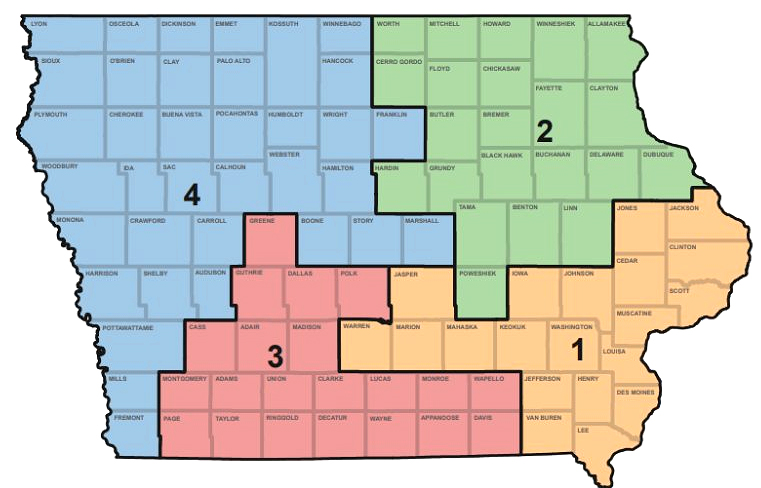By Jim Ellis — Wednesday, Dec. 13, 2023
President

Former President Donald Trump / Photo by Gage Skidmore
According to the analysis, this is the largest historical advantage anyone has held for a competitive Iowa Caucus.
House
CA-20: Leading Contender Won’t Run — With Rep. Kevin McCarthy (R-Bakersfield) resigning his seat before the end of the year, the California candidate filing deadline has been extended five days in this district because the incumbent is not seeking re-election. A surprise occurred Monday, as the potential candidate viewed as having the best chance to succeed McCarthy, state Sen. Shannon Grove (R-Bakersfield) who already represents 91 percent of the 20th Congressional District constituency, announced that she will not run for Congress.
Immediately, state Assemblyman Vincent Fong (R-Bakersfield), who had filed for re-election after announcing he would not run for Congress, now wants to file for the congressional seat. It may be difficult for him to withdraw from the assembly race, however, since his candidacy for the legislature has been officially approved. At the time of this writing, rumors also abound that former Congressman Devin Nunes (R) may also file at the last moment. The filing period ends today, so all questions will be answered at that time.
IA-1: Poll Shows Rep. Miller-Meeks With Close Lead — The US Term Limits organization polled Iowa’s politically marginal southeastern 1st Congressional District (RMG Research; Nov. 28-Dec. 2; 448 likely IA-1 voters; online) and finds Rep. Mariannette Miller-Meeks (R-Le Claire) edging former state representative and 2022 congressional nominee Christina Bohannon (D) by a 38-35 percent margin.
The term limits push question then places Bohannon ahead after the pollsters indicate that the challenger supports limiting terms while the incumbent does not, but this will not likely be a determinative issue for the 2024 election campaign.
TX-18: Rep. Jackson Lee (D) Files for Re-Election — Just two days after losing a landslide runoff election in the Houston mayoral campaign, veteran Rep. Sheila Jackson Lee (D-Houston) quickly turned around and filed for re-election to the House. Candidate filing closed Monday in Texas for the 2024 election cycle in preparation for the state’s March 5 primary.
Now, we could potentially see a Democratic primary battle develop. Anticipating the seat would be open if Jackson Lee was elected mayor, five Democrats filed as congressional candidates including former Houston City councilwoman and ex-US Senate candidate Amanda Edwards. It remains to be seen how many of these filed contenders decide to continue to run now that the incumbent has returned.
The 18th District is fully contained within Harris County. The population is 40 percent Hispanic, 34 percent black, and 6 percent Asian. Only 19 percent is recorded as non-Hispanic white. Dave’s Redistricting App’s partisan lead calculation is 73.6D – 24.4R. The FiveThirtyEight data organization rates TX-18 as D+43, so winning the Democratic nomination process is tantamount to claiming the seat.






